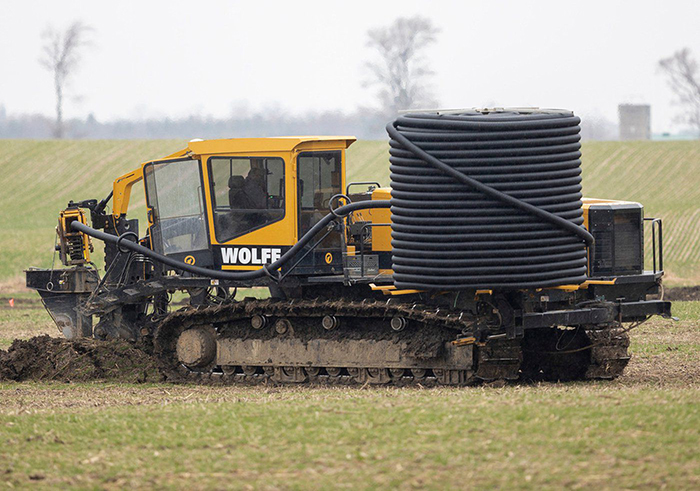
By Brian Williams
Local Journalism Initiative Reporter
Just like home prices, farmland prices rose across the country last year – up an average 11.5 per cent overall from the year before, down slightly from the previous year.
Prices for cultivated farmland rose in every province tracked by Farm Credit Canada except for British Columbia, which saw an average 3.1 per cent decline in prices but which is home to the costliest farmland in the country.
In Ontario, prices rose by an average 11.5 per cent, with variations within the regions that make up the province. Farm Credit Canada bases its valuations on sales and also establishes price ranges for farmland that factor out the highest- and lowest-selling outlier properties.
Compared to 2022 and 2021, when the provincial averages soared by 19.4 and 22.2 per cent, respectively, the jump in farmland prices in Ontario cooled last year, the fallout – the FCC reports – of higher interest rates and lower commodity prices. Realtors reported fewer bidders for properties up for sale.
Even at that, however, the different zones that make up Southwestern Ontario, from west of Toronto to the Michigan border, and north up the Bruce Peninsula, chalked up sizeable increases in farmland value ranging from 8.5 to 13.3 per cent.
An area the FCC calls the South West zone, which it says includes Perth, Huron and Oxford counties, had the highest per-acre price at nearly $33,000 an acre, up 13.1 per cent last year.
The southern zone, made of up Middlesex, Elgin, Lambton and Essex counties, and Chatham-Kent, ranked third in per-acre value at about $23,000, and had the second-highest rate of increase in the province at 13.3 per cent over 2022. That area takes in some of the most valuable land in Ontario, said Hillary Kerkvliet, a senior appraiser with the FCC
“Middlesex saw some of the bigger increases, Elgin County had a couple of pretty sizable increases as well,” Kerkvliet said, adding “Chatham-Kent was a little bit slower,” than past years.
Analysts are reluctant to get into picking winners and losers from rising farmland values, but it’s clear from the numbers – average values in Canada have gone nowhere but up over the last 10 years, and by double-digit rates in nearly half of those – that landowners, who can be producers or investors, are the winners, especially when they cash out.
On the flip side, depending on where in the province the land is located, higher prices make it that much tougher for younger farmers to break into the business and for some producers to expand.
Demand, even in a climate of rising values, is a key driver behind the increases, said Kerkvliet. “There’s still a lot of people out there looking to increase their land base or getting into farming,” she said. And a good year for farmers in Southwestern Ontario, where major cash crops include corn and soybeans, helped to cushion the effect of higher interest rates. Location and soil conditions, which influence crop yields, also play a role in the value of farmland, Kerkvliet said.
Another factor that affects land value is the type of crop grown, said appraiser Dan Laven, who works in the Chatham-to-London area and owns Oakview Appraisals. For example, he noted, “you can make more (money) farming tomatoes, but there’s only certain lands that are appropriate for growing tomatoes.”
Laven said he saw the FCC report and believes it’s a bit “dated.” He said he’s spoken with real estate agents and believes the farmland market is becoming a bit more stable, with some “downward pressure on prices.” He didn’t want to speculate, but said he believes future values will depend on variables such as whether “interest rates come down (and) if commodity price come back up.”
Kerkvliet, similarly, said there are too many factors to predict where the market is headed but said key determinants include farmland income and interest rates.
• The London Free Press






